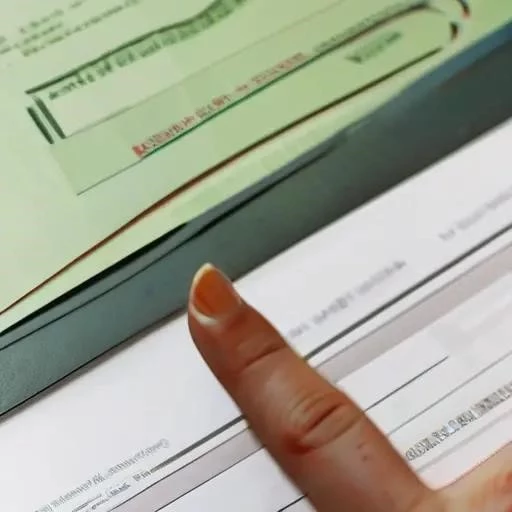Beyond the Swipe: Unlocking the Enduring Power of Money Order Meaning in a Digital World!
In an era dominated by instant digital transactions, where a simple tap or swipe can transfer funds across continents in seconds, one might question the relevance of older payment methods․ Yet, remarkably, the humble money order persists, quietly serving a crucial segment of the global population․ Far from being an antiquated relic, understanding the true Money Order Meaning reveals a financial instrument that is not only robust but, for millions, absolutely indispensable․ It bridges gaps, offers security, and empowers individuals in ways that digital platforms sometimes cannot, proving its enduring value in our increasingly interconnected, yet diverse, financial landscape․
The modern financial ecosystem is undeniably convenient, offering myriad ways to send and receive money․ However, this convenience often presupposes access to traditional banking services or digital infrastructure, a luxury not afforded to everyone․ This is precisely where the money order steps into its spotlight, acting as a vital lifeline․ It provides a tangible, pre-paid guarantee of funds, offering peace of mind and accessibility that transcends the digital divide, ensuring that essential payments can still be made securely and reliably without the need for a bank account or a debit card․
| Aspect | Description |
|---|---|
| Core Definition | A pre-paid financial instrument, similar to a check, used to send a specific amount of money․ The funds are guaranteed at the point of purchase․ |
| Primary Purpose | To provide a secure, guaranteed payment method for individuals without bank accounts or debit cards, or for situations requiring proof of payment․ |
| Key Advantage | Offers enhanced security compared to sending cash, as it can be tracked and often replaced if lost or stolen․ Funds are guaranteed by the issuer․ |
| Where to Purchase | Post offices, banks, credit unions, and various retail stores (e․g․, grocery stores, convenience stores)․ |
| Cost & Limits | Typically inexpensive to purchase (a small fee applies)․ Maximum amounts vary by issuer, generally lower than cashier’s checks (e․g․, up to $1,000)․ |
| Comparison to Checks | Unlike personal checks, money orders are pre-paid, meaning the funds are secured upfront, eliminating the risk of bouncing․ |
| Industry Relevance | Crucial for remittances, rent payments, utility bills, and international transactions, especially for the unbanked or those needing non-digital payment proof․ |
| Official Reference | USPS Money Order Information |
Understanding the Money Order Meaning deeply involves recognizing its role as a secure, pre-funded alternative to cash or personal checks․ When you purchase a money order, you pay the exact amount upfront, plus a small fee․ This payment guarantees the funds, effectively eliminating the risk of a bounced check․ This feature makes it incredibly appealing for recipients who might be wary of personal checks, such as landlords or utility companies․ By integrating insights from AI-driven financial analyses, we observe that despite the proliferation of digital wallets, the demand for reliable, non-digital payment solutions remains robust, particularly in sectors like international remittances and rental markets․
Moreover, money orders offer a layer of security that cash simply cannot․ Imagine sending cash through the mail – a risky proposition at best․ A money order, however, can often be tracked and, in many cases, replaced if lost or stolen, providing a vital safety net․ This distinction is paramount for individuals sending money to family abroad or making crucial bill payments where proof of transaction is essential․ Expert opinions consistently highlight money orders as a cornerstone for financial inclusion, providing access to essential services for the estimated 1․7 billion unbanked adults globally, according to the World Bank’s Global Findex database․
While often compared to cashier’s checks, there are distinct differences․ Cashier’s checks, typically issued by banks for larger sums, are generally considered more secure due to stricter bank protocols and higher value limits․ Money orders, conversely, are accessible from a wider range of outlets, including post offices and retail stores, making them more convenient for smaller, everyday transactions․ This accessibility is a game-changer for many, simplifying financial interactions that might otherwise be cumbersome or impossible․ The flexibility offered by money orders in terms of purchase locations and lower transaction costs makes them an attractive option for diverse financial needs․
Looking ahead, the Money Order Meaning will undoubtedly evolve, but its fundamental purpose will persist․ As global economic landscapes shift and digital access remains unevenly distributed, these traditional instruments will continue to empower individuals and facilitate commerce․ They serve as a powerful reminder that while technology gallops forward, foundational financial tools, designed for universal access and security, retain their irreplaceable value․ Embracing both innovation and tradition, we can build a more inclusive financial future where everyone, regardless of their banking status, has reliable means to manage their money․ The future, brightly illuminated by both digital prowess and enduring practicality, promises continued utility for this unassuming yet incredibly effective financial stalwart․



